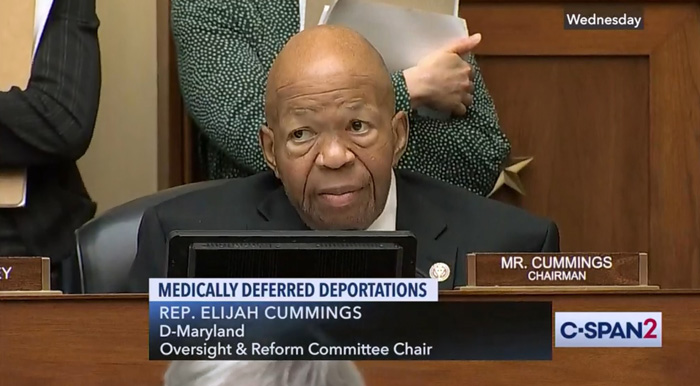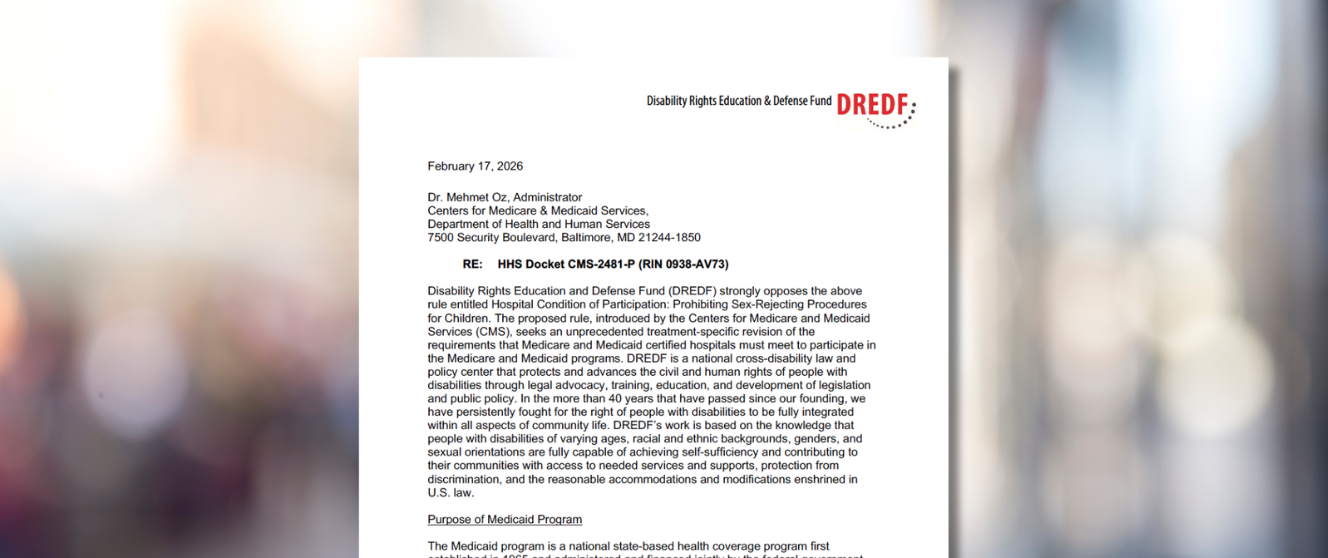
October 17, 2019
“This Administration’s decision to stop medical deferred action has had real consequences on real people… I really do think we are in a moral situation. People are striving to live. Trying to be better. Trying to be healthy.” Representative Elijah Cummings (D-MD), September 11, 2019, the date of his last public appearance, a House Oversight and Reform Subcommittee hearing on Civil Rights and Civil Liberties on the attempt by the Trump administration to revoke medical deferred action for critically ill children.

The Disability Rights Education and Defense Fund mourns the loss of Representative Elijah Cummings (D-MD), who died at age 68 on October 17. Representative Cummings was an advocate for truth and justice from childhood until the end. Even on his last public appearance on September 11, 2019, he spoke out in support of disabled people at risk of deportation. Anyone familiar with Cummings’ career should not be surprised.
Born to Baptist preachers on January 18, 1951, raised by parents with a third-grade education, Elijah Cummings was an advocate for equal opportunity from an early age after a grade school counselor asserted that his career dream – to become a lawyer like TV’s Perry Mason – was beyond his reach.
"I was devastated," Cummings told The Associated Press in 1996, shortly before winning his seat in Congress. "My whole life changed,” said Cummings. “I became very determined.”
In speeches and in media interviews throughout his career, Representative Cummings certainly wasn’t shy about sharing his experience as a special-education student from K to 6th grade. Clearly, he used the incident to motivate him, in part, to prove that guidance counselor wrong.
“I was told I would never become a lawyer because of where I was from and being in a special ed class,” Cummings said in 2013, “I am here to tell all of you that it is not about the environment, it is about the expectation.”
Cummings not only became a lawyer, but also one of the most powerful members of the MD statehouse, after first being elected to office in 1983. He rose through the ranks to become the first black House speaker pro tem. Cummings, who graduated Phi Beta Kappa from Howard University, was a graduate of the University of Maryland Law School, and a recipient of 11 honorary degrees. Cummings’ long career spanned decades in Maryland politics, first in the statehouse, then in the House of Representatives where he won his congressional seat in a special election in 1996 to replace former Rep. Kweisi Mfume, who left the seat to lead the NAACP.
DREDF honors the life and legacy of Representative Cummings. Our collective thoughts and prayers go out to the family, including Dr. Maya Rockeymoore Cummings, his wife, and their three children; his friends and staff; and the city of Baltimore—a city that he loved, fought for, and defended until his final days. May his lifelong embodiment of equal opportunity, civil rights, and fairness be an example for us all.

